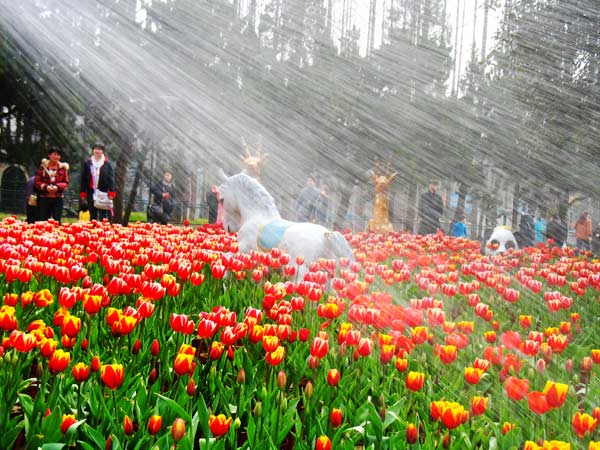Can sprinklers rinse away the haze?
Yu Shaocai believes he knows how to clean China's dirty air - wash it.
The academic at China's Zhejiang University and the US' North Carolina State University recently detailed his idea in Springer's journal Environmental Chemistry Letters. He proposes installing a sprinkler system to water China's atmosphere, essentially rinsing the smog away.
Yu's research suggests this could reduce the atmosphere's fine-particle load to 35 micrograms per cubic meter.
He says the idea came to him while watching a garden being watered.
"I immediately thought that we can clean air pollution by spraying water into the atmosphere - like watering a garden".
China's haze is caused by PM2.5 - particles smaller than 2.5 microns in diameter that the respiratory system can't filter out.
"It's well-known that precipitation scavenging is the single most efficient way of removing aerosol pollution in the atmosphere," he says.
Precipitation scavenging is the natural process by which atmospheric moisture - rain, fog or snow - removes substances from the air.
Yu cites research done at a Beijing urban atmospheric environmental monitoring station that shows a marked decrease in air pollution directly after heavy rainfalls - and increases in pollutants during dry spells.
"When we have rain, especially heavy rain, rainwater can clean the air pollution in a very short time period from a few minutes to hours or days, depending on the precipitation rates," Yu writes.



















